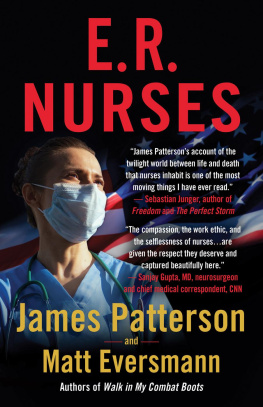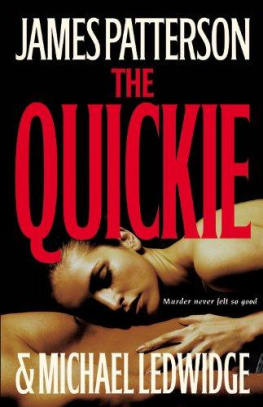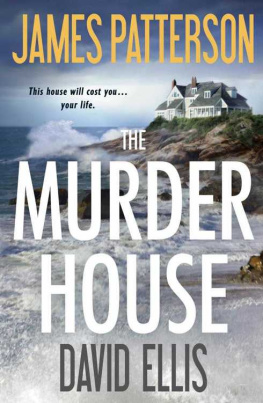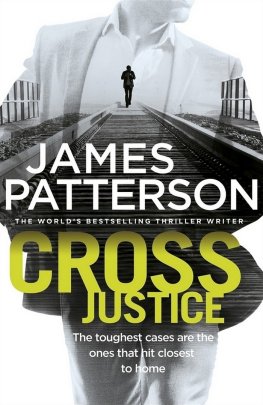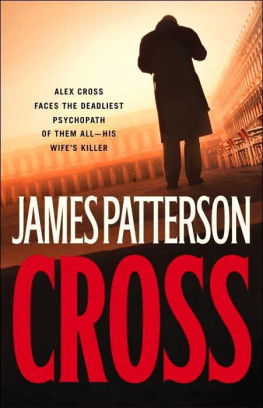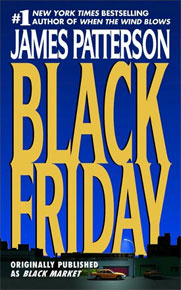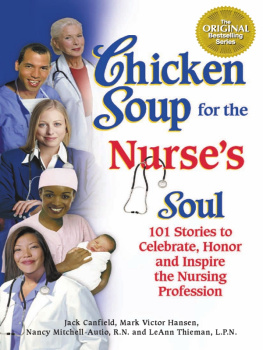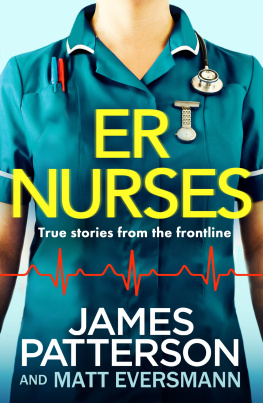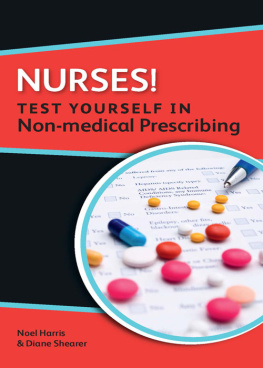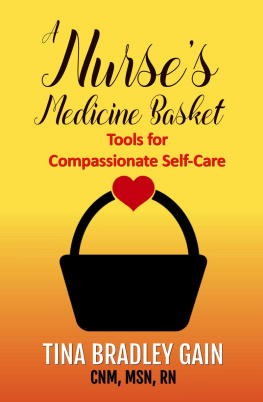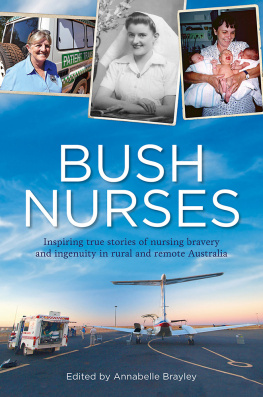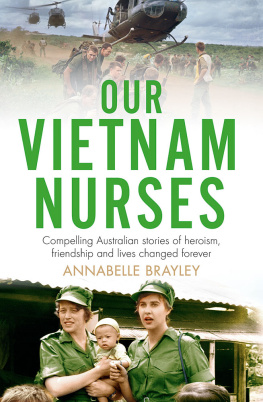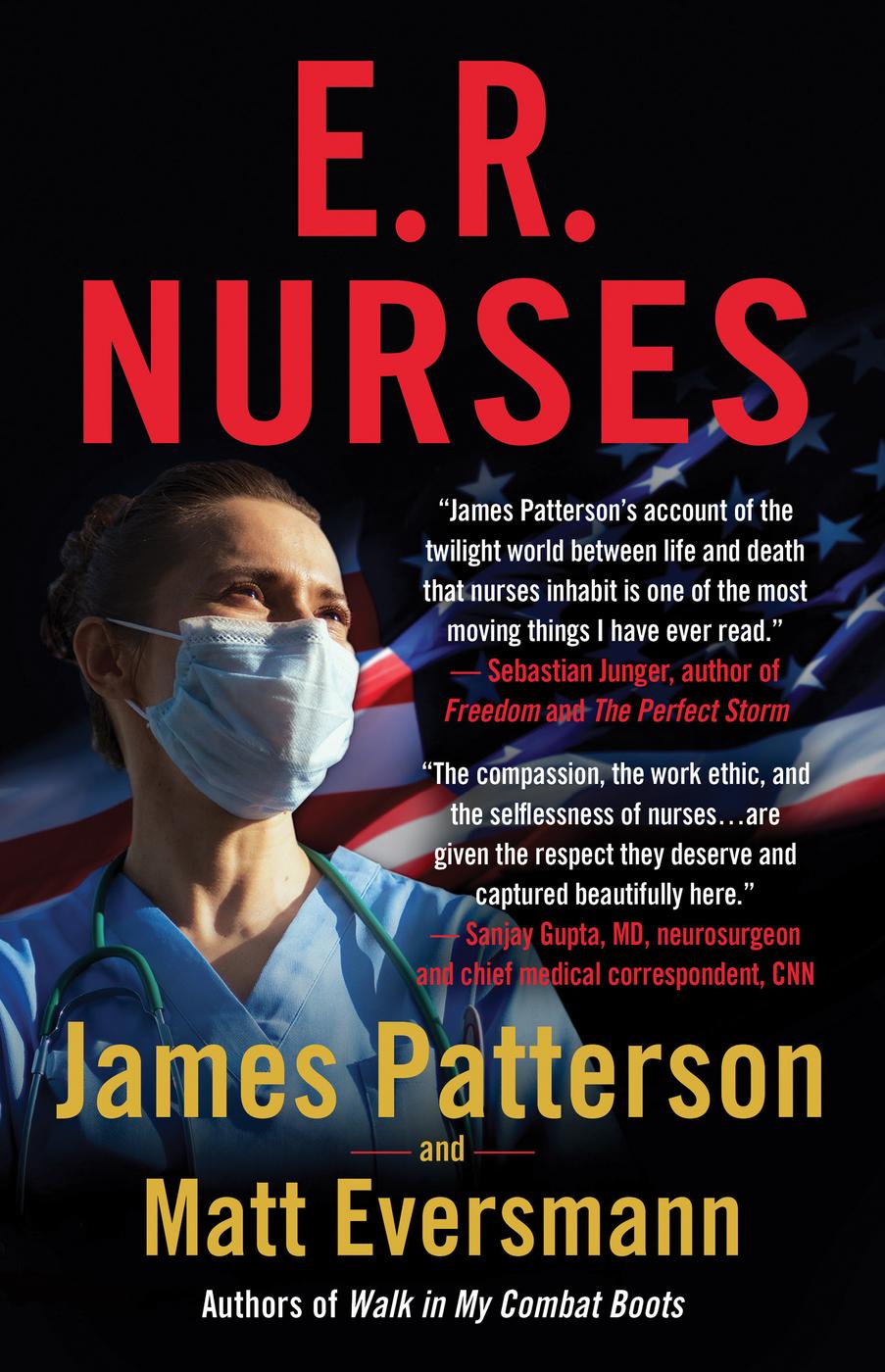Names and identifying details of some of the people portrayed in this book have been changed.
Hachette Book Group supports the right to free expression and the value of copyright. The purpose of copyright is to encourage writers and artists to produce creative works that enrich our culture.
The scanning, uploading, and distribution of this book without permission is a theft of the authors intellectual property. If you would like permission to use material from the book (other than for review purposes), please contact permissions@hbgusa.com. Thank you for your support of the authors rights.
Little, Brown and Company is a division of Hachette Book Group, Inc. The Little, Brown name and logo are trademarks of Hachette Book Group, Inc.
The publisher is not responsible for websites (or their content) that are not owned by the publisher.
The Hachette Speakers Bureau provides a wide range of authors for speaking events. To find out more, go to hachettespeakersbureau.com or call (866) 376-6591.
For a complete list of books by James Patterson, as well as previews of upcoming books and more information about the author, visit JamesPatterson.com or find him on Facebook.
Get on the list to find out about coming titles, deals, contests, appearances, and more!
The official James Patterson newsletter.
Angela was born in New York City and grew up in Virginia Beach. After graduating from nursing school, she did an externship at a cardiovascular ICU. Angela is a traveling nurse and currently lives in California.
I dont think Im cut out to be a nurse.
Growing up, I watched my mother take good care of my extended family, especially my grandmother. My interest in becoming a professional caregiver sparked, I toyed with the idea of becoming a doctoruntil I shadowed one and found out how little time doctors spend with patients.
And I want the human interactions, so I chose nursing.
But nursing school, Im finding, is hard. Im struggling with the dual responsibilities of attending class during the day and working as a nursing assistant at night.
The hospital job is important because its a front-row seat to the reality of nursing. The nurses here run around at a hundred miles a minute, all the while projecting to everyone that they are cool, calm, and collected.
I admire their composure, because Im an empath. Im highly sensitive to what other people are thinking and feeling. I take on their emotions, their pain. A lot of the nurses here share that trait. They have more heart than they let on.
And then theres death. It comes in waves, and lately weve had a lot. When someone dies, it really affects me, and it really affects the other nurses too because, deep down, like me, theyre nurturers. But they cant show it. They have to be rational, steady, fully in control of their emotions.
Theres no way I can do this for a career, I think as a nurse delivers a new patient to one of the open rooms on our floor.
His name is Brian. His wife is with him. They both look shell-shocked.
I came into the hospital tonight because Im not feeling well, Brian explains as the nurse and I get him settled. I was holding a lot of fluid in my stomach, and I wanted to see whats what. They ran a couple of tests, and itsI have pancreatic cancer.
Brian is a professor at one of the colleges. Hes a super-nice guy, former navy, and really, really accomplished. Hes so kind to the staffso thankful. The staff love him. I love him. We gravitate toward him because of his demeanor, how he handles himself as he tries to fight the disease.
One night, as Im talking with Brian, I share my struggles with him.
You can do this, he tells me. Going to school during the day, working nightsI know its hard. Its supposed to be. Remember, nothing thats worthwhile in life comes easy.
I come from a family of nurses and doctors. Theyve essentially given me the same adviceto hang in there, be resilient. Theyre supportive because theyre my family. But the conviction in Brians words and the confident way he says them leaves an indelible impression on me.
In the two months hes with us, I watch his physical abilities decline. He can no longer walk, cant even stand up or roll over in bed.
Weve been married for forty-five years, his wife tells me. I dont know what Im going to do without himI dont even know who Ill be without him.
Brians death hits me hard. I cling to his words as I continue my struggle through nursing school. I think of him when I graduate.
At twenty-five years old, Im a traveling nurse. Every three months, I get to pick where Id like to work. Ive decided to finish up my stint in Colorado Springs, take a month off, then move to New York City. My family spent many summers there when I was young, and I enjoyed those times, but Ive never been there as an adult.
I arrive in early March of 2020. The first two weeks are fun. I work three days a week and explore the city on my days off.
Im aware of COVID. Its on my radar, but it hasnt hit NYC yet.
The travel company Im working for calls me and says, The hospital is going to transition you into overflow.
During cold and flu season, hospitals can get overcrowded, so they often have designated areas to deal with a high volume of sick patients. On top of that, my hospital is also expecting an influx of COVID patients.
Be prepared to work forty-eight to seventy-two hours each week.
Okay, I say, wondering if Im going to get an N95 mask and proper protective equipment. Will do.
The hospital gives us each a simple surgical mask. Because of the limited supply, the mask when not in use is to be stored in a brown paper bag and then reused until its soiled. Because Ill be working in the COVID unit and the COVID ICU, I can wear my gown multiple times. When its soiled, Ill be given another one.
Were each given a respirator (a mask with a filter) in a bag labeled with our name. Respirators are designed to be used once and for no longer than one hour. But now, as long as theyre not soiled, were to reuse them until they fall apart.
COVID hits New York fast and hard. The hospital insists we wear our masks continuously throughout our twelve-hour shifts. The constant wear causes blisters on my nose and my cheeks. My skin breaks down. One day after work, when I take off my mask, the skin peels off my nose. It just rips right off.
During a thirteen- to fourteen-hour day, carbon dioxide builds up inside the masks. The gas is unsafe in high concentration. A couple of nurses on my floor pass out from inhaling too much CO.
I use the respirator Im given for three weeks.
By April, the COVID cases have risen alarmingly. One day, we have close to eleven thousand cases.
If I dont have COVID now, I think, Im going to get it.
The majority of our patients who need to be intubated dont ever make it out of the hospital.

